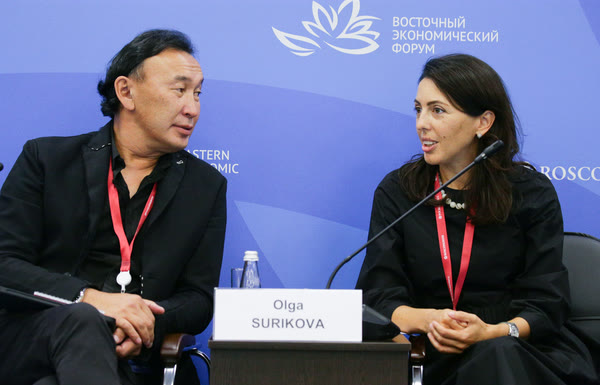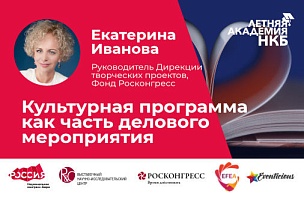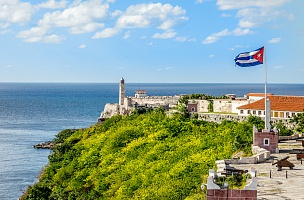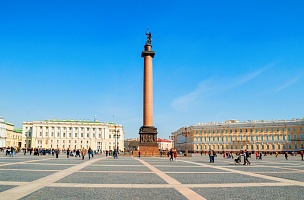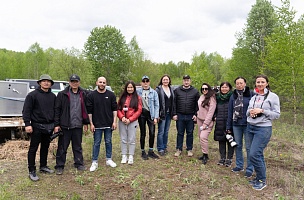The Far East is among the most attractive, yet least accessible tourist destinations
“Over the last five years, travellers have shown a fairly high interest in this territory. <…> Though popular, it has never become a destination for mass tourism. <…> Most likely, because of its expensiveness and remoteness. <…> The whole tourist traffic to the Far East (it includes a bit of the Arctic) is just 11.9% of the country’s total tourist traffic. For such a vast territory as the Far East, this is a fairly low number. Yet, it has a great potential for taking the tourist traffic up to a whole new level,” Olga Surikova, Director, Tax and legal, KPMG in the CIS.
“The Far East is the place of power for us. <…> This is the territory of pristine nature, where we can build modern facilities from scratch in line with what our guests need and what the nature needs. <…> This is a huge potential for visitors. Today’s tourists are different. Younger generations come for visual impressions. They want to see the unique nature and stay where one can explore it. This is one of the advantages of the Far East. <…> The project in Buryatia can be expanded and duplicated. <…> Today, we have signed agreements with Kamchatka and Yakutia on building new facilities. We are considering Sakhalin,” Aleksandr Tertychnyy, General Director, Anterra.
“I need 140 kilometres from Chita to my village. If there is no road, the project will gradually die out. It is interesting now, because it is new. But if there is no road, <…> this project will die,” Dashi Namdakov, Sculptor, Artist, Jeweller; Member of the Union of Artists of Russia.
The region’s accessibility has improved through state support
“The measures listed in the Tourism National Project have been revisited in terms of support for large investors, medium investors, and small projects. Last year, 25% of all grants accounted for the Far East,” Elena Lysekova, Deputy Head, Russian Federal Agency for Tourism.
“Last year, together with TUI we launched Far East charter packages, which brought here tourists that could apply for cashback. At the same time, they were able to get a ready-made <…> fully pre-calculated vacation and travel to the Far East, which many thought was impossible,” Elena Lysekova, Deputy Head, Russian Federal Agency for Tourism.
“Thanks to the subsidies from Rostourism, a package tour from Moscow to the Far East is comparable to the air fare. Today, one travel to Sakhalin for RUB 35 thousand, which includes the air fare, accommodation, and tours,” Taras Demura, General Director, TUI Russia.
Promoting the Far East as a tourist destination should not damage the environment
“…The Far East is a luring brand that takes a careful and gentle approach. At the same time, it is a place where multiple interests – investment interests cross. They can transform its potential and make travelling more affordable, interesting and environment friendly at the same time. Nature is vulnerable, so it needs a careful development,” Elena Lysekova, Deputy Head, Russian Federal Agency for Tourism.
Problems
It is hard to create tour packages due to misalignment of air lines, while these destinations cannot be accessed with other modes of transport
“There is a high demand for multiple-destination tours. <…> Customers <…> want to see Kamchatka and Sakhalin. <…> We are unable to align charters and local airlines and make it convenient. <…> It is important for the new Far Eastern airline <…> to understand this and cooperate with tour operators, so that we can align our flights with theirs,” Taras Demura, General Director, TUI Russia.
Dated laws fuel conflicts
“Our country does not have the concept of ‘environmental tourism’. It just does not exist. In 2019, Vladimir Putin instructed authorities to introduce this concept and everything related to it. It means we need to have applicable regulation. As of today, we are not regulated, which results in conflict. This conflict has no winners or losers, because our territories are not developing. Sometimes they suffer because things are interpreted differently,” Alexander Kozlov, Minister of Natural Resources and Environment of the Russian Federation.
Lack of events that would attract tourists
“Our region does not have enough events <…> that would draw attention to this territory. <…> There is a high demand for cruise ship tourism. Our travellers need more of such offers. The biggest constraint for our tourists <…> is the lack of infrastructure,” Olga Surikova, Director, Tax and legal, KPMG in the CIS.
Tourist projects are expensive due to systemic problems in the regions
“We have full support from government authorities. They create zero obstacles. yet, one faces systemic problems. <…> As for Far Eastern regions, it is primarily the high cost of construction. <…> The cost of investment has already gone up 1.5 times. <…> Finally, it is the multi-level approval system. In February, it took us three weeks just to upload the paperwork, and nobody – not even IT – could help us. It took a lot of time. <…> A month-long holdout is critical. Banks label these projects high-risk ones due to their high cost,” Aleksandr Tertychnyy, General Director, Anterra.
High VAT rate for tourism
“Our VAT rate is 0% <...> for international tourism. Only the revenue – the margin – is VATable. It means that domestic tourism is by default 20% more expensive. Our government policy targets developing and supporting incoming international tourism. <...> While on our level, the competition is between international and domestic tourism,” Taras Demura, General Director, TUI Russia.
Solutions
New mechanism will improve transparency and clarity of regulation
“We have prepared a bill that will introduce the concept of environmental tourism. <...> We started working on it so that Vladimir Putin could approve it in January 2022. <...> Cutting forest, capital construction, and biosphere proving grounds will be prohibited in all nature reserves. The Far East has 109 of them. <...> As for the cooperation between business and government, we would like to provide for <...> a clear and transparent auction procedure with investors. <...> As for the bill, we will have to adopt about 10 regulatory acts that will cover the matters that are not covered by the law. <...> Our task is to create a mechanism free of any misinterpretation,” Alexander Kozlov, Minister of Natural Resources and Environment of the Russian Federation.
Accessibility should be viewed both in terms of local residents and tourism. And vice versa
“The programmes are primarily built based on <...> local passenger traffic. Tourist traffic is somewhat accounted for. It needs to be included to calculate the capacity, routes, and passenger traffic. <...> The programme for aircraft leasing does not exist, per say. <...> I would say it would make sense <...> to review the programmes <...> in terms of <...> tourism instead of local passenger traffic alone. There can be two areas for improvement. First of all, it is infrastructure. <...> Secondly, it is aircraft leasing. <...> Finally, it is subsidizing the travel – the air fare, the tour, etc.” Alexey Tsydenov, Head of the Republic of Buryatia.
“When it comes to supporting infrastructure, tourism projects should be viewed just like social projects. It is not just the tourists who need these roads. IT is the local residents, who live here or in the neighbouring territories,” Sergey Bachin, General Director, Vasta Discovery.
New support measures can boost tourism development
“It is important for the VAT to be applied only to the margin. <...> It will result in a great economic effect and a boost in domestic tourism, because prices will go down 20%,” Taras Demura, General Director, TUI Russia.


